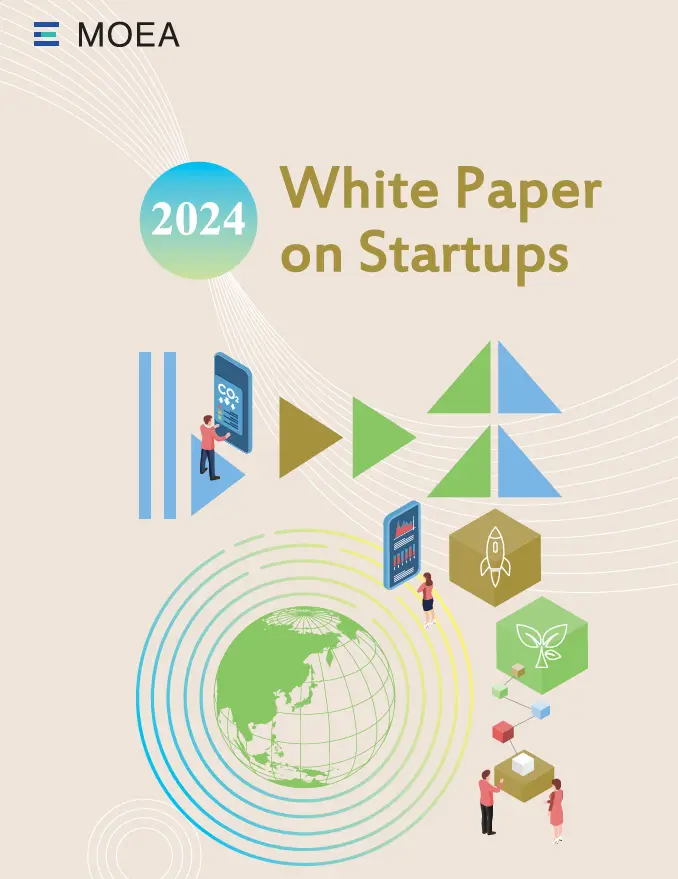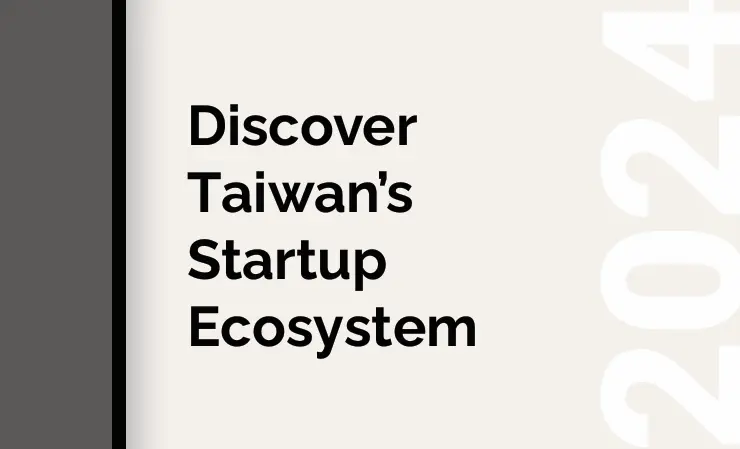2024 White Paper on Startups
The 2024 White Paper on Startups provides a definitive view of Taiwan’s innovation landscape, home to 9,576 ventures as of late 2024. The national strategy, aiming for an "innovative entrepreneurial rainforest ecosystem", focuses on the "five trusted industry sectors", leveraging semiconductors and AI as dual-core industries. Globally, Taiwan ranks third in the national entrepreneurial environment (GEM), demonstrating strengths in infrastructure and favorable government policies. Investment is concentrated in healthcare, biotech, and energy, with green energy sustainability being the fastest-growing sector. This first annual publication, released by the Ministry of Economic Affairs, consolidates resources to maximize ecosystem synergy.

The entrepreneurial environment in Taiwan holds a competitive edge on the global stage, making Taiwan an ideal location for startup development. This is attributed to multiple factors, including Taiwan's world-leading manufacturing and innovation capabilities, industrial clusters, high quality of life, and cultural integration. In particular, a comprehensive industrial value chain, highly skilled research talent, and startup-friendly policies form the core competitiveness of Taiwan's startup ecosystem. According to the Global Entrepreneurship Monitor (GEM) report, Taiwan ranks third globally in its entrepreneurial environment, excelling especially in infrastructure and policy support. Similarly, StartupBlink's report places Taiwan's startup ecosystem 22nd worldwide, highlighting its strengths in industrial innovation, hardware manufacturing, and human resources, all of which have drawn the attention of global entrepreneurs.
As of the end of 2024, Taiwan was home to 9,576 startups, demonstrating the vibrant dynamism of its startup ecosystem. Taiwanese startups are primarily in artificial intelligence, biotechnology and pharmaceuticals, and cultural and creative industries. In addition, the investment sector, incubators, and government agencies provide multi-level support to startups.
In the area of investment, angel investors focus on healthcare, software, and hardware; venture capital focuses on healthcare, biotechnology, and energy, while corporate venture capital leans toward energy, hardware, and manufacturing. These diverse investment strategies not only reflect the market's keen interest in innovative technologies and sustainable development but also highlight Taiwan's potential in the relevant technological fields. During business growth, incubators focus on startups in cultural and creative industries, artificial intelligence, and biotechnology. They provide startup guidance, resource connections, and industry exchanges to help startups grow quickly and expand their market networks. For their part, accelerators are playing an increasingly prominent role in the startup ecosystem, with services covering biotechnology, artificial intelligence, and clean technology. They are critical drivers that enable startups to connect with corporate resources and expand into international markets.
Government agencies closely collaborate across education, research, funding, and market access. To meet the needs of startups at different stages of development, they offer diverse financial support, including grants, loans, and investments. For market expansion, the government facilitates entry into domestic and international markets through international exhibitions, innovation parks, and corporate collaborations. Talent development strategies enhance the competitiveness of entrepreneurial teams, complemented by support services that include regulatory consultations, technological R&D, and information platform support.
Looking ahead, Taiwan will continue to strengthen international cooperation, attract more global capital and talent, and deepen policy innovation and market integration to further enhance the competitiveness of its entrepreneurial environment. In addition, by strengthening industrial clusters and optimizing infrastructure, Taiwan will continue supporting startups in achieving their goals, attracting international talent, driving innovation, and fostering economic growth.
For the full report, please check the attached file.



